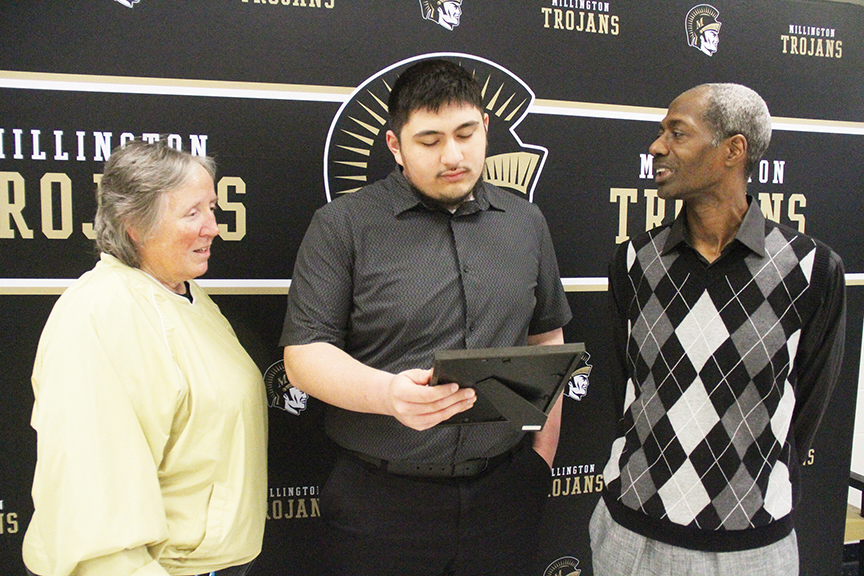By Thelma Ledford
The most important meal of the day is breakfast. While we are asleep and totally relaxed, the cells of our organs are hard at work spending energy to build and repair cells and body tissues. In fact, this work of which we are unaware represents about two-thirds to three-fourths of the total energy we spend in a day. So, where will it get energy if we skip breakfast? The body’s top priority is to meet the needs of the cells so that we will have energy for the day. Its normal way of doing so is by periodic refueling—that is, by eating. Begin your day with a protein meal—eggs and meat. “I don’t like breakfast!” “I don’t have time!” “I’m not hungry!” “I want to lose weight!” “I’m not a breakfast person!” Where will you get energy for the day? What happens to the body? What about your brain? Do you ever have trouble thinking about mid-morning? Do you get shaky, and have to grab a sweet roll, coke, coffee, or a smoke? The brain has run out of energy. Have you ever heard of low blood sugar? Ignoring these warnings for long periods of time will result in serious consequences. Sweets, coffee, cold drinks, and fruits are simple sugars and are digested in about thirty minutes. Then the energy level will drop even lower. The medical world has told us that our old standby, bacon and eggs, is not a good choice. I disagree! They also told us that whole grains produce high and long-lasting energy. That may be true, but grains are not complete proteins, and alone are not sufficient to meet the needs of the body. If dairy is added, it is complete protein, but some people cannot use milk. What then? During the course of a whole day, the body must have all the essential amino acids so that it can make the nonessentials. If all the food we eat is used for energy, how can the body build and repair cells? It is a serious problem today. Eat all kinds of food and you can protect yourself. Balance is the key! Be sensible! Most of us want to do what is right; however, the media has people so confused no one knows what to do. There are so many health care professionals giving us advice, but they don’t even agree. Who do you believe?” That is what I’ve been doing for almost fifty years. It is not an easy job. I tell people to eat foods as close to nature as possible as I’ve explained before. What I do is try to find a balance. Use a variety of different foods. Practically all energy comes from the food we eat—half from carbohydrate and half from protein and fat. When someone speaks of carbohydrate, what comes to mind? People correctly associate the word with sugars and starches, but many do not realize that most fibers are also carbohydrates. Some think of carbohydrates as “fattening” but they aren’t—unless, of course, you eat too much of them. The primary role of carbohydrates in human nutrition is to supply an indispensable commodity—energy. When they yield energy, they spare proteins from being used for energy, and allow proteins do the jobs they are uniquely suited for. Carbohydrates appear in virtually all plant foods and in only one food taken from animals—namely milk. All are composed of simple sugars. Carbohydrates for energy come in the forms of blood glucose—sugar and starch. Simple sugars burn quickly; complex sugars, or starches, are slow-burning. You could begin your day with whole grains. These produce high and long-lasting energy. Introduce a different grain each morning: rolled oats (not instant), brown rice, millet, corn, shredded wheat, buckwheat; use them as cereal, whole grain bread, pancakes, or waffles. Top them with fresh fruit in season, raw nuts, granola, raisins and a good protein powder (or use all of them). Terrific! Substitute a fruit topping such as applesauce, or a small amount or maple syrup—even add cottage cheese, if you tolerate dairy. However, I also eat bacon, eggs, and whole grain bread. I don’t like to say: “I can’t eat that!” I can eat all kinds of foods, but I try to be balanced.
What happens when food is not available to the body? It must find other fuel sources—in its own tissues. [Fasting with lots of water is useful at times to rid the body of toxins; fasting burns the bad stuff first, and the water removes the waste.] If people choose not to eat, we say they are fasting; if they have no choice (as in a famine), we say they are starving. To the body there is no metabolic difference between the two. When you skip breakfast after an all night fast, the body gets confused as to what you are doing—it is trying to keep you alive. After reading this, I ask you: “Should you skip breakfast?” It is your choice. Whether you are underweight or overweight there can be a price to pay. We may think that we will burn the excess weight, but this is not always the case. The body may think you are starving and begin to conserve the excess weight instead. Be good to your body! Take time for breakfast! In my life, I find that a breakfast with eggs and meat keep me stable longer. Usually I add soy protein with any breakfast, or use it as a pick up between meals. I never leave the house in the morning without eating something. It is not good to add fruit juice to any meal because it dumps too much sugar into the blood stream.




